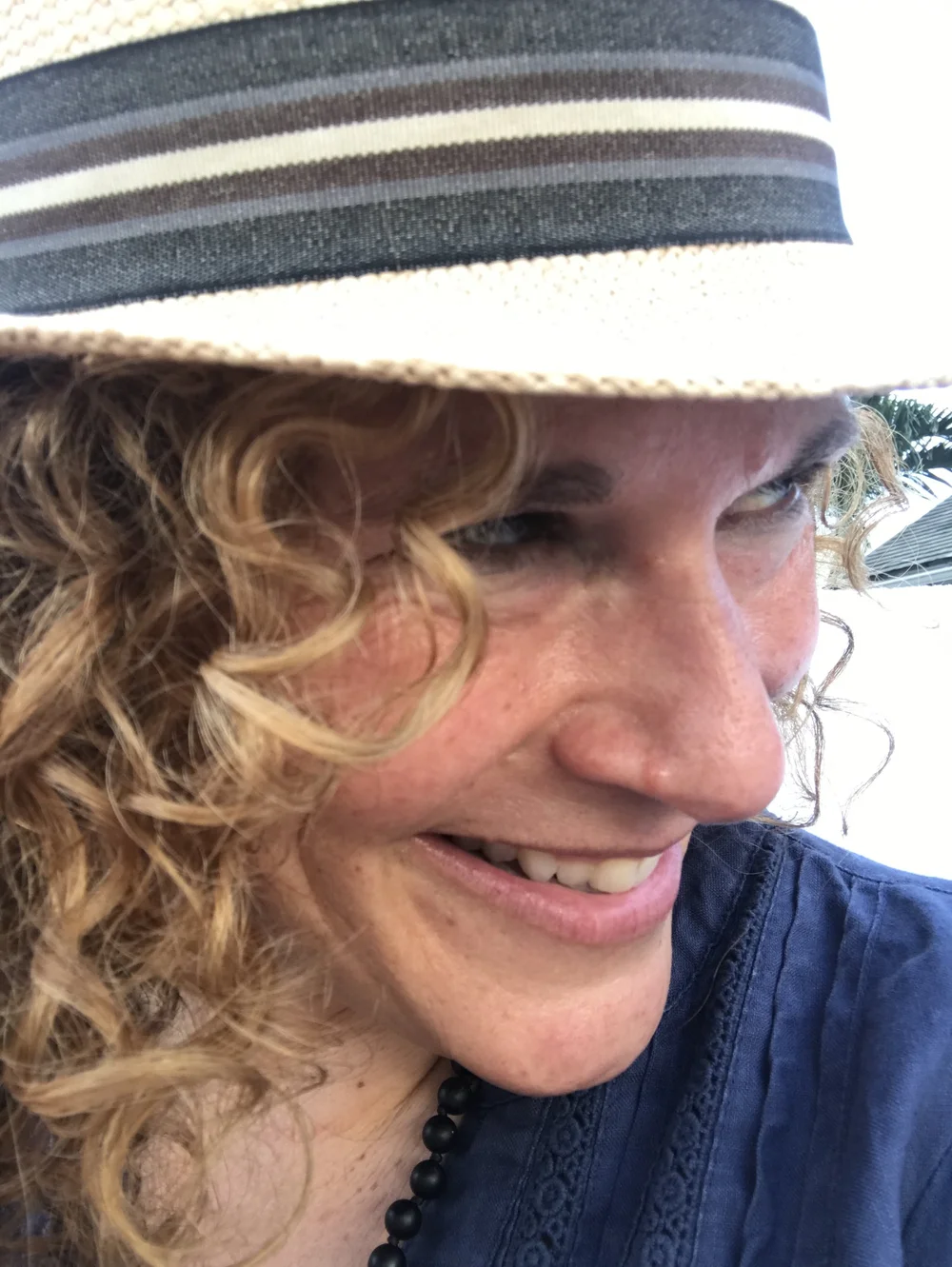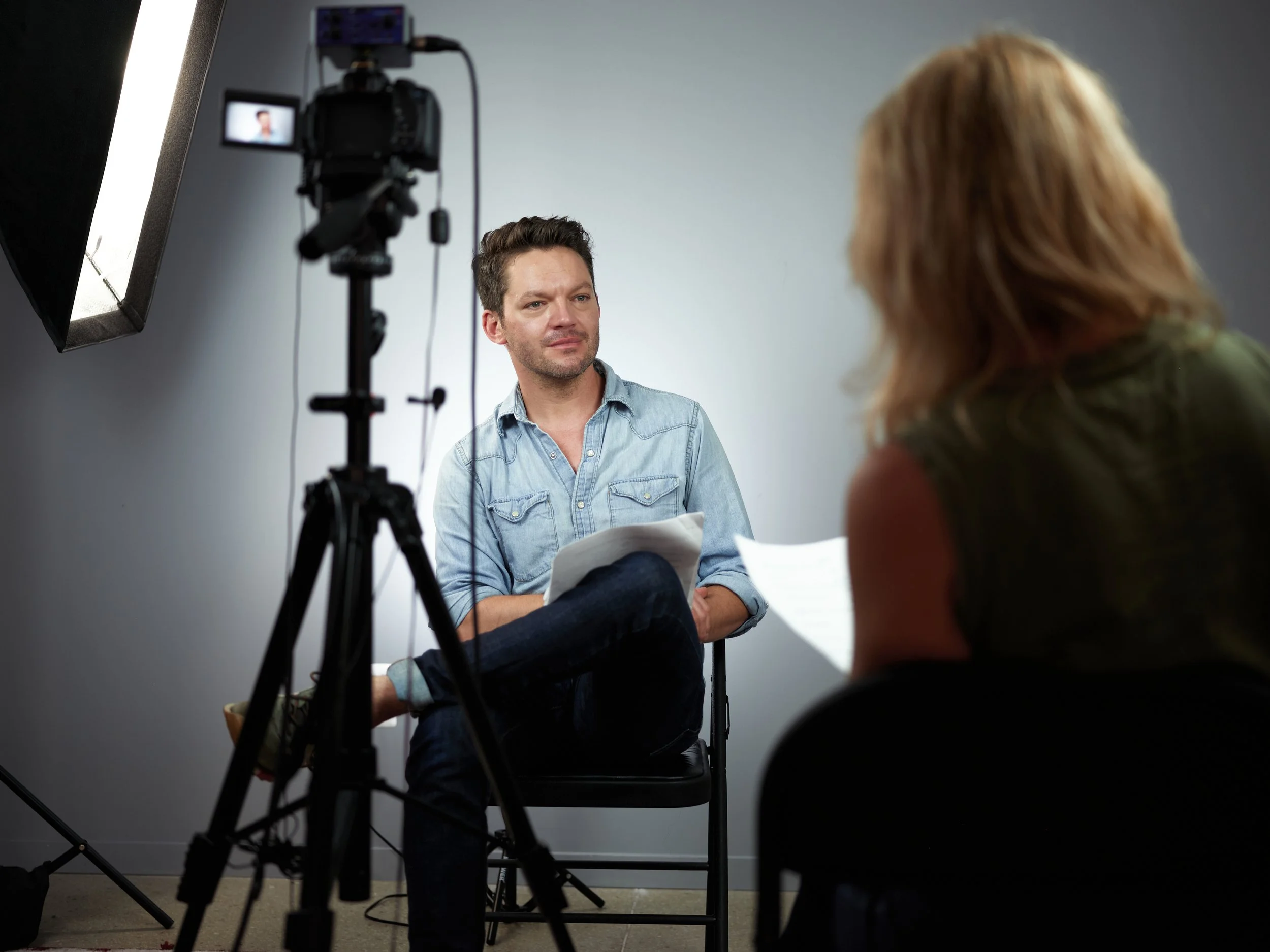I recently sat down with my friend and casting director Julie Tucker, who currently casts “The Equalizer” with her colleague Ross Meyerson, to get her vibe and her take on the current state of the business. She is kind,...

I recently sat down with my friend and casting director Julie Tucker, who currently casts “The Equalizer” with her colleague Ross Meyerson, to get her vibe and her take on the current state of the business. She is kind, passionate, and loves actors.
1. Where did you grow up?
I grew up in Tallahassee, Florida but moved to Westfield, NJ when I was 16. I went to the Boston Conservatory of Music and then transferred to Bennington my junior year, after graduating I moved to New York. I would say I grew up somewhere between Tallahassee, NJ, Boston, and NY.
2. What brought you to casting?
When I graduated from Bennington College a professor recommended, I seek an internship at the Public Theater in Casting as an entree into New York Theater. While the internship provided that, I also learned the skills of being a casting assistant and I saw what a casting director did to shape a show. I was hooked! But I didn't go from there directly into casting. Through my internship, I met the director/lyricist Martin Charnin. I worked with him on various projects and in between I would freelance as a casting assistant. I zigged and zagged a lot, I also worked as an agents asst, stage managed but always returned to casting.
3. What do you love most about actors? Their courage.
4. What’s one big piece of advice you have for actors and their self-tapes?
Choose essence over extreme. Use movement and props as needed to play the scene. Don't fall into the trap of thinking you have to show casting something. If you don't need it, we don't need it. Use what you need to play the scene.
5. Do you feel that it’s harder for casting directors to get to know actors these days, because they are no longer in the room?
We have adapted as necessity insisted, we do! We learn what we need to know to hire an actor for the job. But we don't get to know the actor they way we use too in the room. AND I might add there’s a generation of actors who aren’t getting to know us.
How do you know an actors “vibe” from their one line self tape?
You would be surprised how much you can figure out in a slate and from a resume. I also look at Instagram and other online content to research actors whom I haven’t met or don’t have a lot of credits.
How do you develop a relationship with actors these days?
Self-tapes have us all working on the same thing but alone. What use to be developed through collaboration now is happening through our separate processes. While less than ideal the good news is the Casting Director - Actor relationship is still developing. Every audition, each tape an actor submits builds a body of work with us, the work is the foundation of our relationship. I miss actors and how we affected one another. That part of our relationship has taken a devasting hit. I know it impacts actors not being in the room. In addition to the obvious, they have lost the sense that they are being seen! For us we have lost connecting and learning about the actor as a whole person. Now I connect at the Theater, events, Zoom, when I teach or over Instagram.
6. How many submissions do you get for a basic guest star on the Equalizer? Do you really want to know? From that how many self-tapes do you request? We see a lot. How often are you looking at an actor’s footage in this situation? Reels? All the time.
7. What do you think will change with casting in the new year? Will you go back to in person? Will you do live zoom callbacks? A mixture?
A mixture would be ideal. Self-tapes are here to stay. I was shocked to learn how many Casting Directors were doing them before COVID. I am hoping to go back in person a few days a week this Spring and Summer and while keeping option for actors to self-tape. It is all about safety.
8. Is there a particular audition stands out to you over the years? Jennifer Lawrence's audition for "Book of Daniel."
9. If you weren’t in casting, what would you be doing?
Writing and doing research for my book full time. SO, it’s good I am casting. Writing a book is a grueling process.
Casting lets me tap into that other stuff. Along with my love of working with actors, it is an extension of all my interest - directing, storytelling, teaching, traveling, activism, sociology, diplomacy and research. And every so often 16-year-old me gets to come out and act with the best of you!
I want to add one question because of the SAG announcement the other day about self-tape limits, implying that casting might not always watch the full tape.
First, there is a misconception we are not watching the self-tape. We are. Our job is not just casting the role in front of us but finding actors. All tapes go into our files, and we reference them all the time. Whether it’s a line, 5 pages or 15, that is the body of work I spoke about earlier. The actor is never just reading for the role in front of them but for the one, that has their name on it down the road.
What do you think about sags new rule for indie films saying no more than 5 pages in a self-tape?
I don't do enough Indie Films to know the circumstances those casting directors face. I would assume they are sending lengthy sides out because they have to (or feel they do). Perhaps the new guideline will support them in having conversations with their producers to build more time into the casting process, but this can be tricky with limited budgets. I will be very curious to hear what my peers who are casting indies feel.
Do you think that will crossover to tv? Seems to be that the first tape should be quick, and then when you call people back they should get more material. Thoughts
SO, TV. With Episodic, on an 8-day prep, there is rarely enough turnaround time for callbacks with additional material. On Pilots, there's more of a window for that process until you get to the crunch period.
Casting directors and associate casting directors put a lot of thought and consideration into the length of sides and turnaround time on auditions with actors in mind. We work with the writer and director to cut the sides to the absolute necessity needed to cast the role. I mention this for the actors who are reading this to know that casting advocates for them all the time.
What's crucial for all of us is not to lose sight that we are in this together. We need to seek out ways to feel connected.











